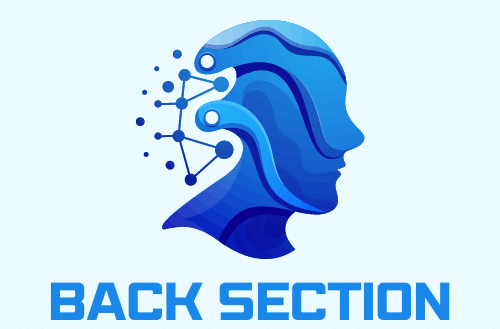In the rapidly evolving digital age, Artificial Intelligence (AI) and generative technologies are revolutionizing various sectors, including the public sector. As government agencies and organizations adapt to emerging technologies, the potential for AI to enhance public services and increase efficiency becomes increasingly apparent. This article explores how AI-powered solutions are transforming the landscape of the UK public sector, enhancing citizen services through innovative applications in data-driven decision-making and service delivery.
AI and the Public Sector: A New Era of Efficiency
The integration of AI in the public sector marks the beginning of a new era characterized by efficiency and innovation. Government agencies are leveraging AI to streamline operations, improve decision-making, and deliver better public services. From predictive analytics to generative AI, these technologies are reshaping how governments interact with citizens and manage resources.
A découvrir également : What Are the Potential Applications of AI in UK Urban Development?
AI systems can process vast amounts of data with accuracy and speed that humans cannot match. For example, machine learning algorithms can predict trends and identify patterns, enabling public sector organizations to make informed decisions quickly. This data-driven approach helps optimize resource allocation, ensuring that government services are delivered effectively and efficiently.
Moreover, AI-powered tools enhance transparency and accountability within government systems. By automating routine tasks, AI reduces the likelihood of human error and bias, leading to more consistent and reliable service delivery. This technological advancement leads to increased citizen engagement and trust in public institutions.
A lire également : What Are the Applications of AI in UK Renewable Energy Management?
Transforming Public Services with AI
AI’s transformative potential extends to various aspects of public services. From healthcare to education and transportation, AI technologies are improving the quality and accessibility of services provided by the government.
In healthcare, AI-driven solutions are revolutionizing patient care and administrative processes. For instance, AI algorithms can analyze medical data to predict disease outbreaks, enabling proactive measures to prevent the spread of illnesses. Additionally, AI-powered chatbots are being used to provide patients with immediate responses to their health queries, reducing the burden on healthcare professionals and expediting service delivery.
Similarly, in the education sector, AI tools are used to personalize learning experiences for students. Adaptive learning platforms assess students’ strengths and weaknesses, tailoring educational content to meet individual needs. This ensures that each student receives a customized learning experience, fostering better educational outcomes.
Transportation infrastructure also benefits from AI technologies. Predictive analytics can optimize traffic flow and reduce congestion, enhancing public transport efficiency. Intelligent transportation systems use real-time data to manage traffic signals and reroute vehicles, minimizing delays and improving overall travel experience for citizens.
Enhancing Decision-Making with Predictive Analytics
One of the key benefits of AI in the public sector is its ability to enhance decision-making through predictive analytics. Predictive analytics uses historical data to forecast future events, providing government agencies with valuable insights to inform policy decisions.
For example, predictive analytics can help in urban planning by analyzing demographic data to predict population growth and housing needs. This enables governments to plan infrastructure projects more effectively, ensuring that resources are allocated where they are needed most.
In the field of public safety, predictive analytics can identify crime hotspots and forecast potential criminal activities. This allows law enforcement agencies to deploy resources strategically, preventing crime and ensuring public safety. Moreover, predictive models can assess the impact of various policy decisions, enabling governments to make data-driven choices that benefit the public.
Furthermore, predictive analytics enhances government operations by improving fraud detection and prevention. By analyzing transaction data, AI systems can identify suspicious patterns, helping to combat fraudulent activities in welfare programs, tax collection, and other public services.
Generative AI and Innovative Public Service Delivery
Generative AI, a subset of artificial intelligence, holds significant promise for public service delivery. This technology can create new content and solutions, such as automated reports, responses, and even creative works, thereby enhancing the efficiency and scope of public services.
Government agencies are harnessing generative AI to automate routine tasks and generate insights from complex datasets. For instance, generative AI can produce detailed reports on public health, crime statistics, or economic performance, allowing civil servants to focus on more strategic tasks. This automation not only saves time but also ensures consistency and accuracy in public service delivery.
Moreover, generative AI can enhance communication between government agencies and citizens. AI-powered virtual assistants and chatbots can handle a wide range of queries from the public, providing timely and accurate information. This improves the overall citizen experience and reduces the workload on human staff.
In addition, generative AI can contribute to creative problem-solving in the public sector. For example, AI algorithms can design new urban layouts, optimize energy consumption in public buildings, and even generate innovative solutions for social issues. This fosters a culture of innovation within the public sector, leading to more effective and sustainable solutions for the community.
Ensuring Privacy and Security in AI Applications
While the potential of AI in the public sector is immense, it is crucial to address concerns related to privacy and security. The use of AI technologies involves the collection and analysis of vast amounts of data, raising important questions about data protection and citizen privacy.
Governments must implement robust data governance frameworks to ensure that AI applications comply with privacy regulations and ethical standards. This includes establishing clear guidelines for data collection, storage, and usage, as well as ensuring transparency in AI algorithms and decision-making processes.
Moreover, public sector organizations must invest in cybersecurity measures to protect sensitive information from cyber threats. AI systems themselves can be used to enhance security by detecting and responding to cyberattacks in real-time. By safeguarding data and ensuring the integrity of AI applications, governments can build trust with citizens and promote the responsible use of technology.
Furthermore, engaging citizens in the development and deployment of AI solutions is essential. Public consultations and feedback mechanisms can help identify concerns and build consensus on the ethical use of AI. This collaborative approach ensures that AI technologies serve the public interest and uphold the values of transparency and accountability.
AI-powered solutions are undeniably transforming the UK public sector, driving unprecedented levels of efficiency and innovation. By leveraging AI and generative technologies, government agencies can enhance decision-making, improve public service delivery, and foster greater citizen engagement.
Predictive analytics allows for data-driven decisions that optimize resource allocation and address societal challenges proactively. Generative AI automates routine tasks and generates new solutions, freeing up civil servants to focus on strategic initiatives. These advancements contribute to a more responsive and effective public sector, delivering high-quality services to citizens.
However, the successful integration of AI in the public sector requires a strong commitment to privacy, security, and ethical standards. Governments must establish robust data governance frameworks and engage with citizens to ensure transparency and accountability in AI applications.
As we move forward, the potential of AI to reshape the public sector is immense. The continued development and responsible deployment of AI technologies will enable governments to meet the evolving needs of society, ensuring that public services are efficient, innovative, and aligned with the public good. The future of AI in the UK public sector holds the promise of a more connected, responsive, and equitable society for all.






